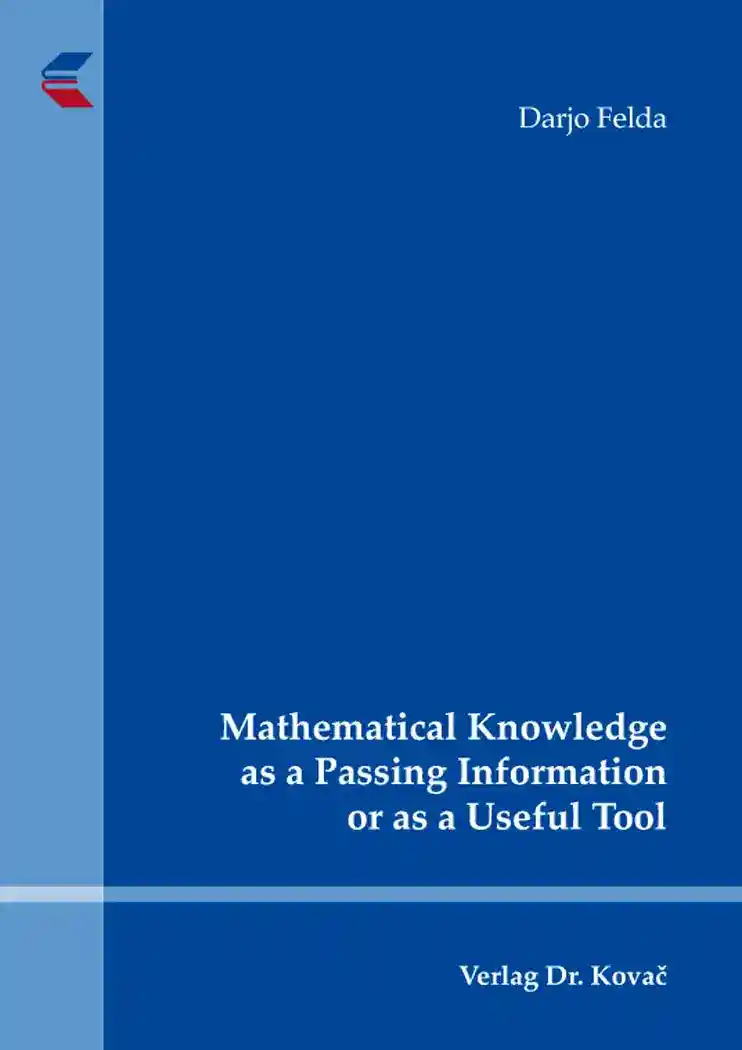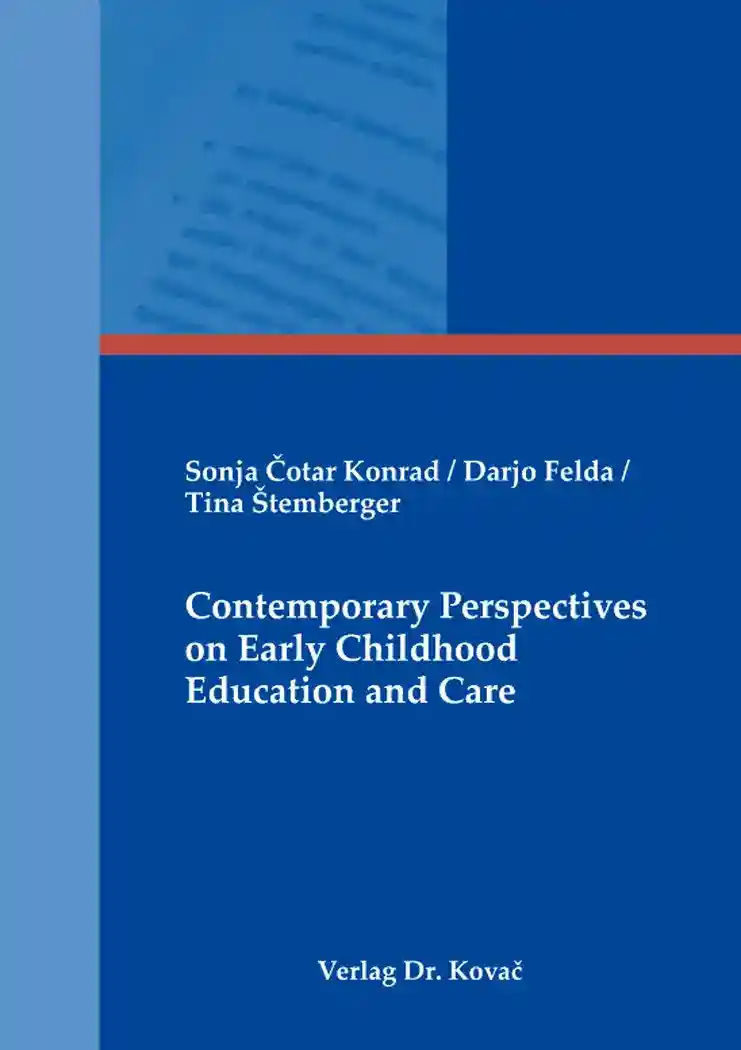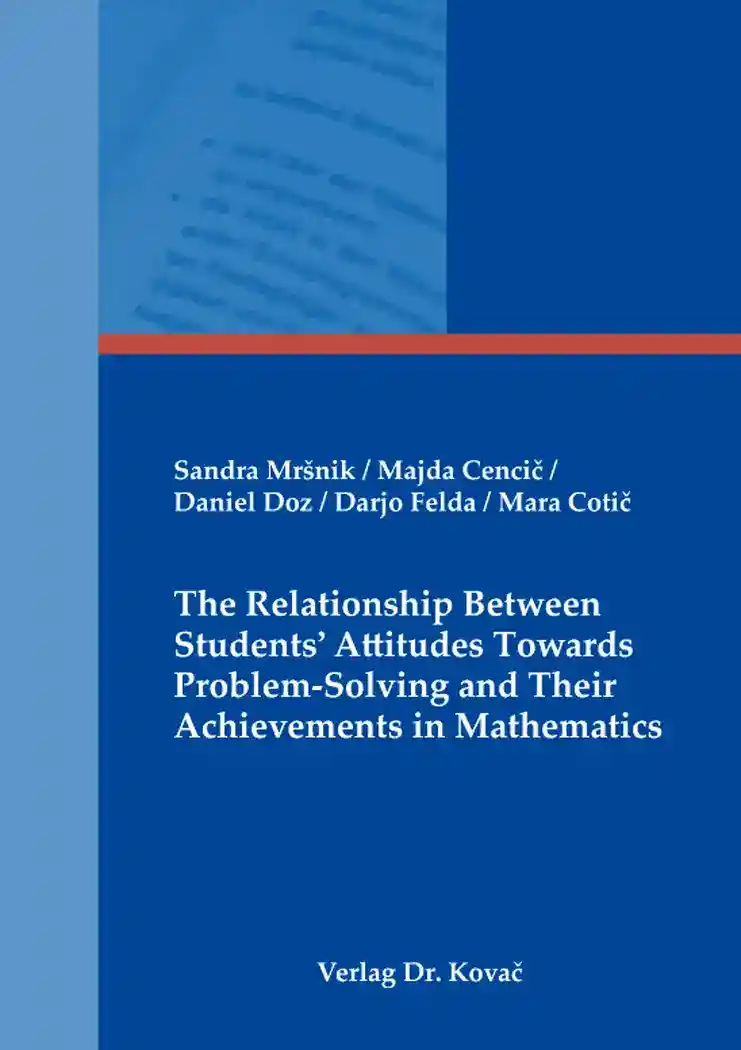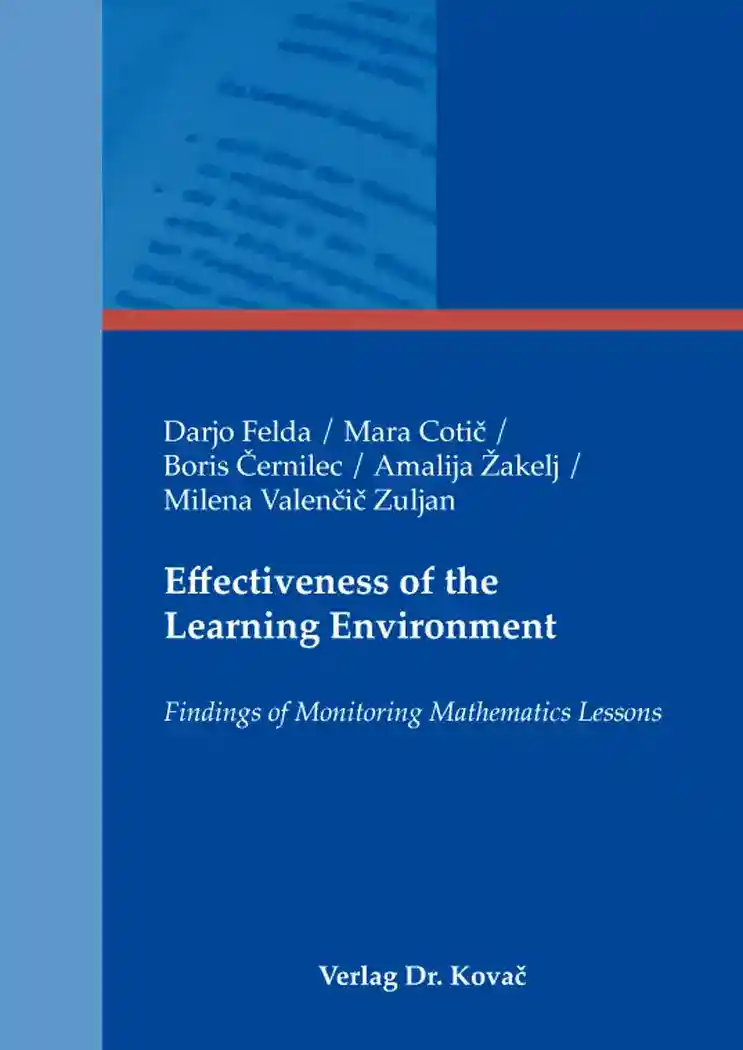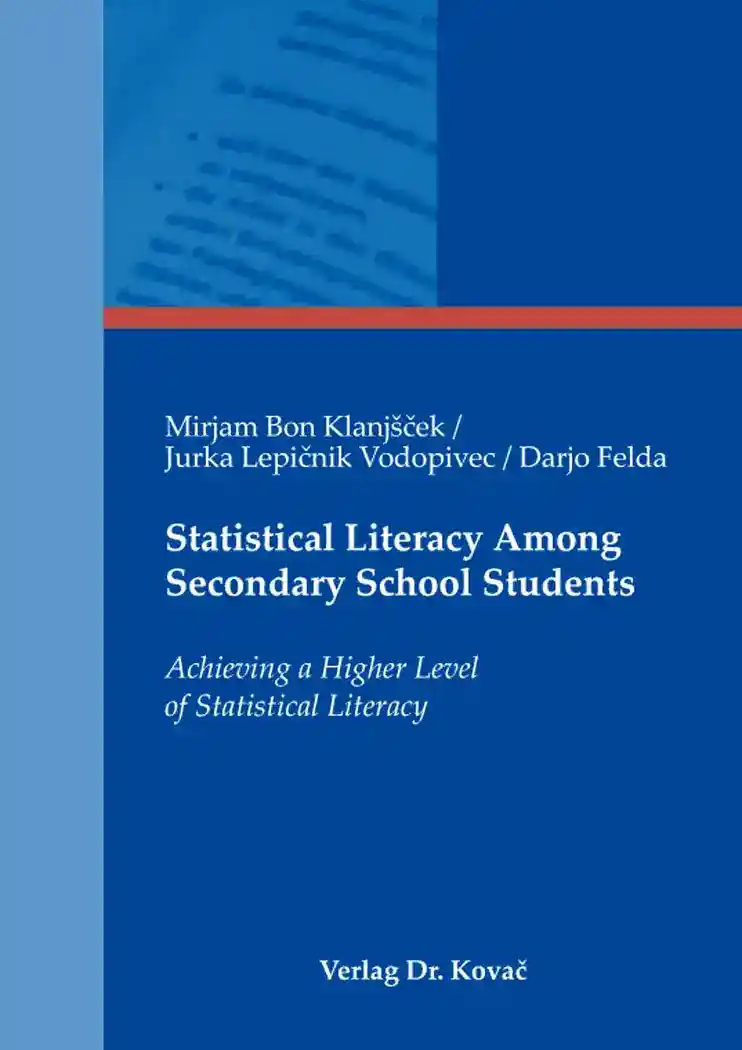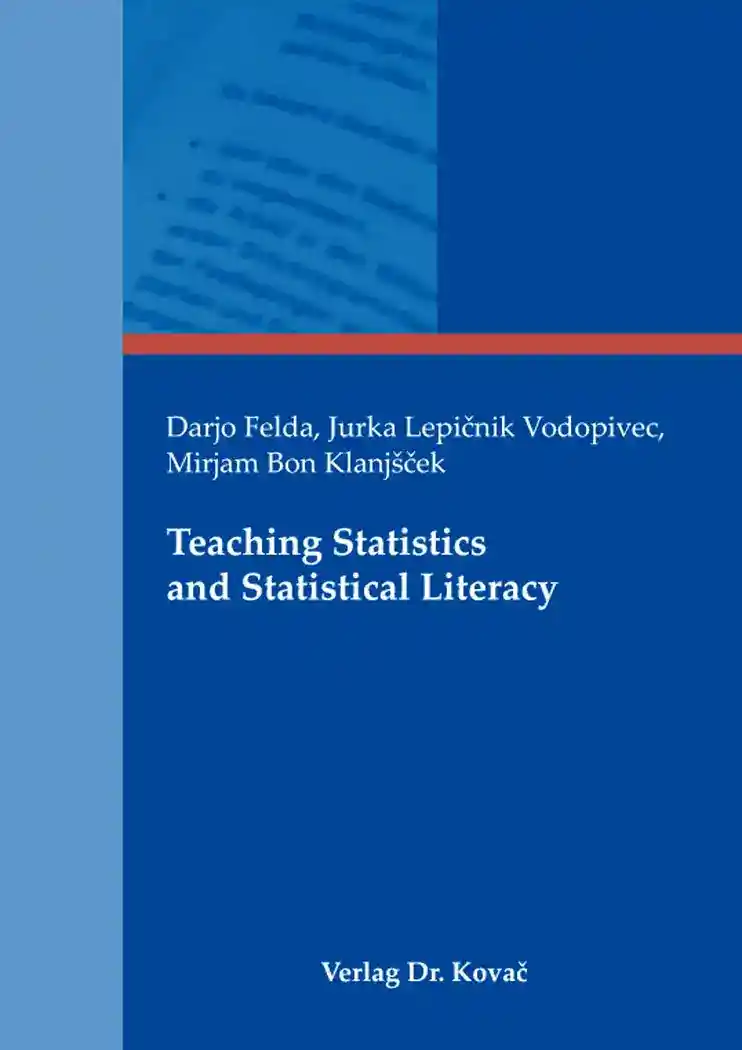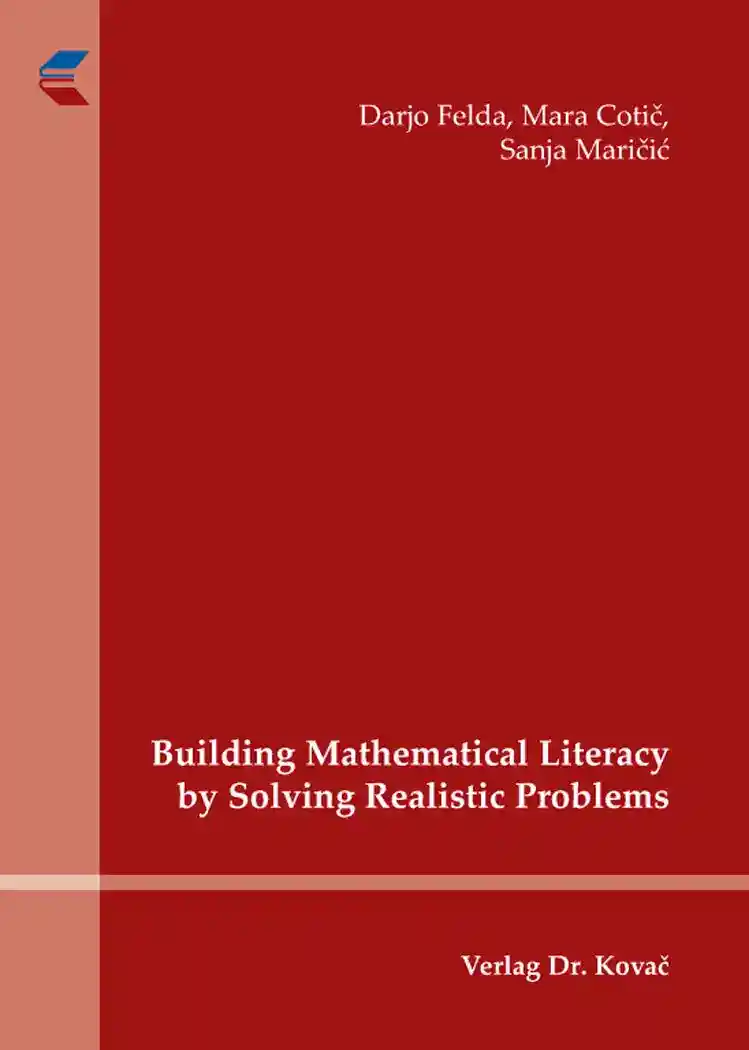Darjo FeldaMathematical Knowledge as a Passing Information or as a Useful Tool
Studien zur Schulpädagogik, Band 88
Hamburg 2019, 114 Seiten
ISBN 978-3-339-10958-3 (Print) |ISBN 978-3-339-10959-0 (eBook)
Zum Inhalt
For several decades now, the mathematics classes in Slovenian elementary schools have been too oriented towards mechanical learning of concepts and procedures, thus neglecting the understanding of said concepts and procedures. The pupils therefore do not see the usefulness of said knowledge, solving routine problems according to an introduced example rather than thoroughly reading the text of each task; furthermore, they are also not aware of the situation described in each of the tasks. The classes are not in line with the newest pedagogical and didactical findings. Rather than focusing on the experiences that the children have had before, the goal is to present mathematic content to pupils based on abstract foundations, thus interrupting the connection between mathematics and the real world.
The curriculum for mathematics classes in elementary school was last updated in 2011. It states that mathematics is one of the basic courses providing numerous educational, informative, functional, formative and pedagogical tasks, while also playing an important role as a support course for other scientific, technical, sociological and humanist sciences (Žakelj et al., 2011). Furthermore, the curriculum allows us to understand that mathematics classes should encourage different ways of thinking, creativity, formal knowledge and skills, thus enabling the pupils to get to know the practically useful and meaningful side of learning maths. When learning mathematics, we should not only be focusing on the cognitive area of the personality of each of the pupils: instead, it is also important to consider the affective and the psychomotor areas, since the main reason for learning and teaching mathematics should be ist importance in the development of the comprehensive personality of each pupil (Ibid.).
Schlagworte
FähigkeitenGrundschuleKognitionLehreLernenMathematical CapacitiesMathematical CognitionMathematical ReasoningMathematics ClassesMathematics LearningMathematics LiteracyMathematics TeachingMathematikunterrichtMathematisches VerständnisPädagogikPrimary SchoolRealistic ContextIhr Werk im Verlag Dr. Kovač

Möchten Sie Ihre wissenschaftliche Arbeit publizieren? Erfahren Sie mehr über unsere günstigen Konditionen und unseren Service für Autorinnen und Autoren.
Weitere Bücher des Autors
Contemporary Perspectives on Early Childhood Education and Care
Hamburg 2023, ISBN 978-3-339-13530-8 (Print) |ISBN 978-3-339-13531-5 (eBook)
Hamburg 2022, ISBN 978-3-339-13074-7 (Print) |ISBN 978-3-339-13075-4 (eBook)
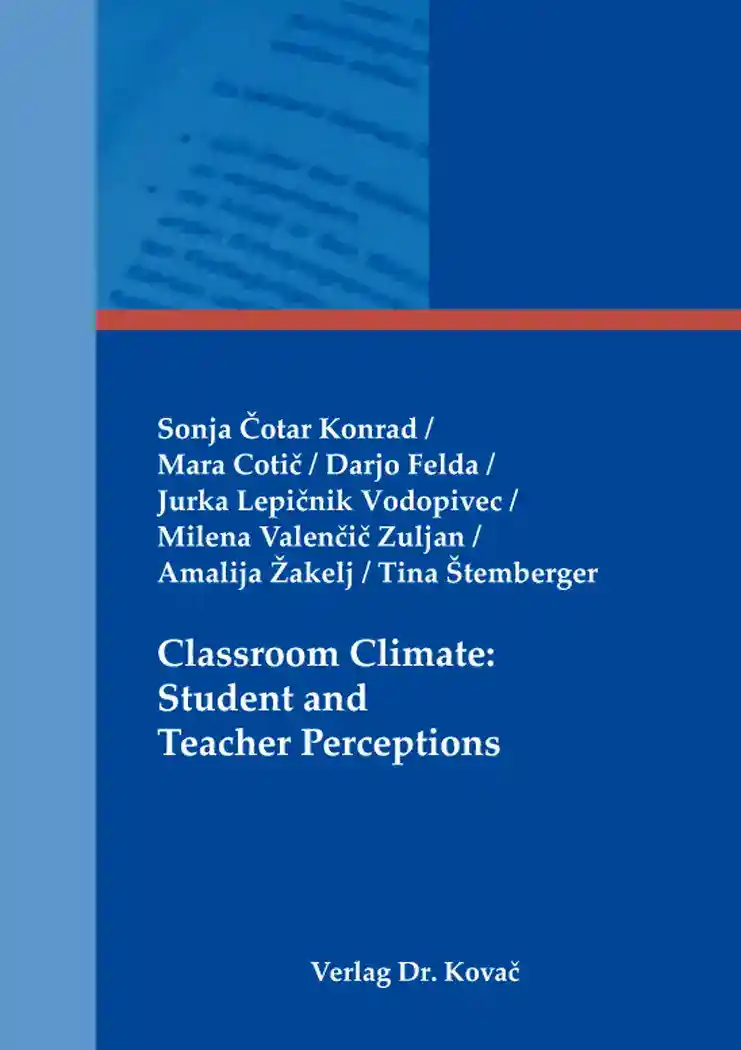 Sonja Čotar Konrad / Mara Cotič / Darjo Felda / Jurka Lepičnik Vodopivec / Milena Valenčič Zuljan / Amalija Žakelj / Tina Štemberger
Sonja Čotar Konrad / Mara Cotič / Darjo Felda / Jurka Lepičnik Vodopivec / Milena Valenčič Zuljan / Amalija Žakelj / Tina ŠtembergerClassroom Climate: Student and Teacher Perceptions
Hamburg 2021, ISBN 978-3-339-12570-5 (Print) |ISBN 978-3-339-12571-2 (eBook)
Effectiveness of the Learning Environment
Findings of Monitoring Mathematics Lessons
Hamburg 2020, ISBN 978-3-339-11730-4 (Print) |ISBN 978-3-339-11731-1 (eBook)
Statistical Literacy Among Secondary School Students
Achieving a Higher Level of Statistical Literacy
Hamburg 2018, ISBN 978-3-339-10356-7 (Print) |ISBN 978-3-339-10357-4 (eBook)
Teaching Statistics and Statistical Literacy
Hamburg 2017, ISBN 978-3-8300-9648-1 (Print) |ISBN 978-3-339-09648-7 (eBook)
Building Mathematical Literacy by Solving Realistic Problems
Hamburg 2016, ISBN 978-3-8300-9105-9 (Print) |ISBN 978-3-339-09105-5 (eBook)
